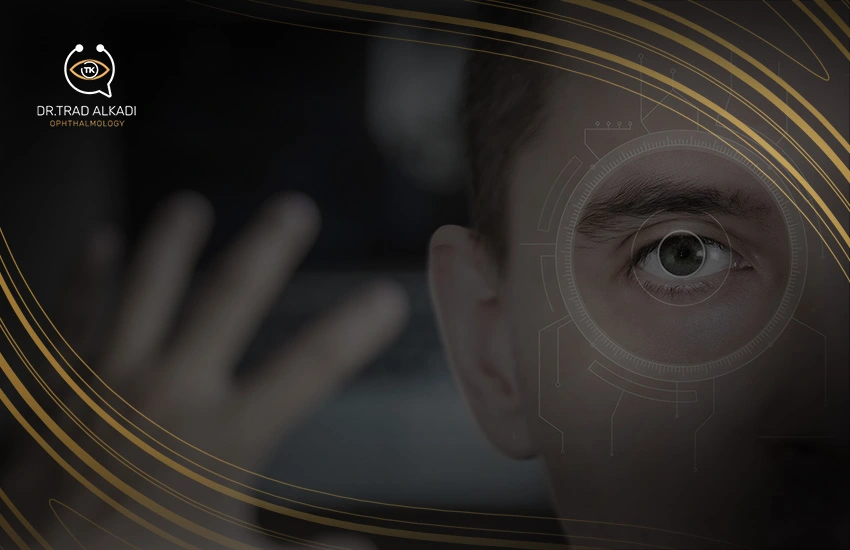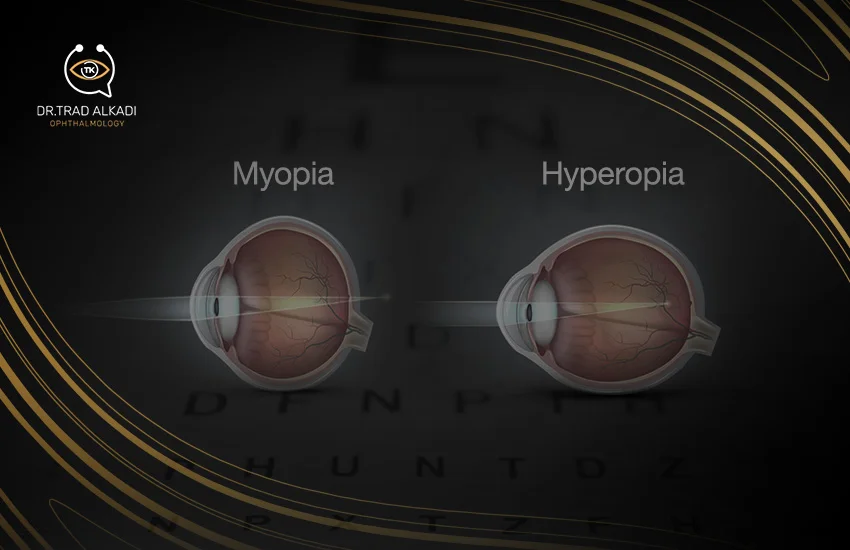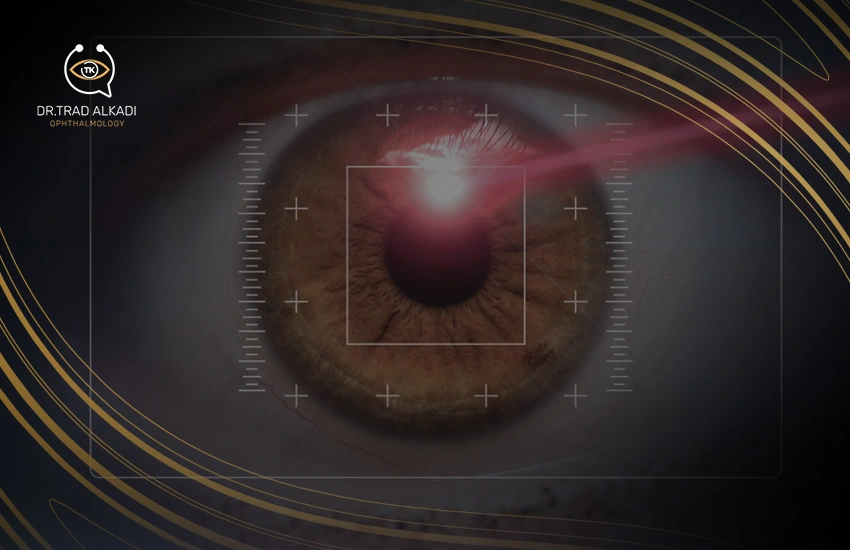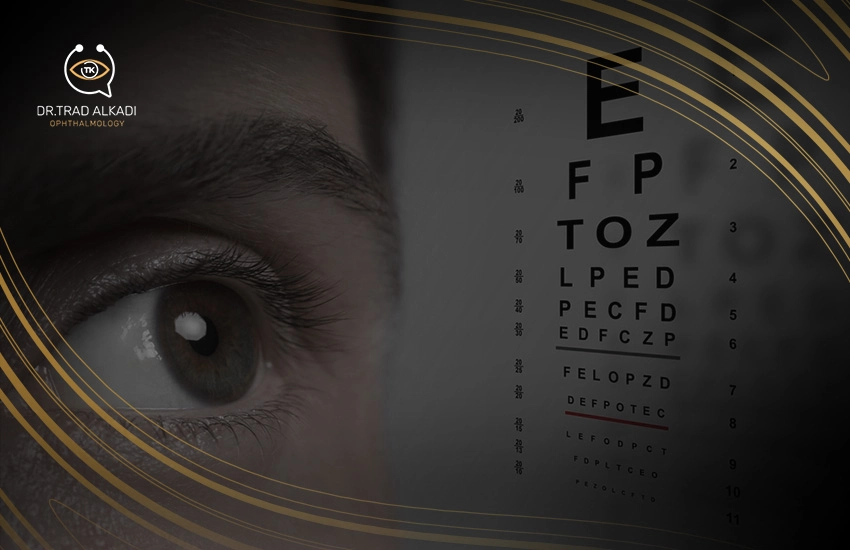If you’ve recently undergone PRK eye surgery and find your vision still blurred, you’re not alone. Many patients experience fluctuating or hazy vision in the days, weeks, and even months following the procedure.
While this can be unsettling, it’s not always a sign of a complication. Some degree of blurry vision after PRK is a natural part of the healing process.
This article breaks down why this happens, what timeframes are considered normal, and when blurry vision may indicate something more serious. We’ll explore how long it typically lasts, what the recovery journey looks like, and how to know whether your experience is progressing as it should or if it’s time to consult your ophthalmologist.
Why Does Blurry Vision Happen After PRK Eye Surgery?
To understand why your vision might be blurry after PRK eye surgery, it helps to know what this procedure involves.
PRK (Photorefractive Keratectomy) is a type of refractive surgery designed to correct vision problems such as nearsightedness, farsightedness, and astigmatism.
Unlike LASIK, PRK does not involve creating a corneal flap. Instead, the outermost layer of the cornea, known as the epithelium, is gently removed, and an excimer laser is used to reshape the corneal tissue beneath.
After the reshaping, the cornea begins to heal, and the epithelium regenerates naturally over several days. During this regeneration phase, and even beyond it, blurry vision after PRK is a common experience.
Blurry Vision and the Healing Timeline
Immediately after PRK surgery, vision is expected to be hazy or blurred. This is due to:
- The removal of the epithelium initially leaves the corneal surface exposed.
- Inflammation is caused by the laser reshaping process.
- The healing process of the regenerated epithelium.
- The eye is adapting to the new curvature of the cornea.
Most patients are fitted with a soft bandage contact lens for a few days after surgery to protect the eye and promote healing. During this time, vision is not expected to be clear.
Blurry or fluctuating vision can persist for several weeks, and this is still considered within the normal healing window.
Some patients notice marked improvement by the second week, while others experience longer recovery periods.
Is Blurry Vision a Sign of PRK Complications?
In most cases, no. However, blurry vision that persists beyond expected milestones may be linked to PRK complications requiring medical evaluation.
This complication can arise from the following reasons.
Common and Usually Temporary Causes
- Dry eye after surgery.
- Swelling of the corneal surface.
- Uneven epithelial healing.
Less Common But More Serious Causes
- Persistent haze or scarring.
- Irregular astigmatism.
- Overcorrection or undercorrection of vision.
- Epithelial ingrowth (rare).
It’s important not to panic at the first sign of haze. Most instances are part of the body’s natural inflammatory and regenerative processes.
What to Expect – Blurry Vision After PRK Over Time
First Few Days After Surgery
Immediately after PRK eye surgery, it’s normal for vision to be blurry, hazy, or fluctuating. This stage is marked by surface healing, with the cornea still regenerating its epithelial layer. During these early days:
- Vision may shift from relatively clear to hazy within hours.
- Light sensitivity and irritation are common.
- You may feel discomfort when blinking or focusing.
This stage usually lasts 4 to 7 days. Blurry vision here is a sign that your eye is responding to the surgical reshaping and starting to heal.
Week 2 to Week 4: Gradual Improvements Begin
As you move into the second and third weeks, many patients notice small improvements in their vision. The most common experience is fluctuating clarity. On some days, vision may seem sharp and functional. On others, it may regress slightly.
Why Does Vision Fluctuate?
- The surface of the eye continues to stabilize.
- Tear film irregularities may affect clarity.
- Healing varies slightly from one eye to the other.
This period often tests a patient’s patience. It’s important to avoid comparing your healing with others, as everyone’s cornea responds differently.
Blurry Vision 2 Months After PRK
At the two-month mark, many patients expect fully clear vision. However, blurry vision 2 months after PRK is common, especially in those who had higher prescriptions or experienced dry eye symptoms during healing.
When It’s Probably Normal at This Stage
- Vision is gradually improving each week.
- Symptoms are less frequent and less intense.
- You’ve been following all post-op care and medication guidelines.
When to Be Cautious
- Blurry vision has plateaued or worsened.
- New symptoms, such as glare or halos appear.
- You experience discomfort that wasn’t there before.
In many cases, dry eyes and healing surface irregularities are the culprits at this stage. Artificial tears and follow-up assessments help guide treatment.
Blurry Vision 6 Months After PRK
By six months, the majority of patients have reached functional vision that is stable for daily life. But a small percentage may still report blurry vision 6 months after PRK, which could point to one of several possibilities.
Possible Reasons for Delayed Clarity
- Residual refractive error (under- or overcorrection).
- Irregular healing of the epithelial layer.
- Corneal haze, especially in high prescriptions.
- Tear film instability or chronic dry eye.
What You Should Do
If you are still experiencing blurry or unsatisfactory vision at this stage, what matters most is a clear and continued line of communication with your ophthalmologist.
Blurry Vision 2 Years After PRK
It may sound surprising, but some patients report blurry vision 2 years after PRK. When this occurs, it is rarely related to the original surgery directly.
The reasons behind blurry vision appearing this long after PRK may include:
- Age-related vision changes (presbyopia or cataract development).
- Natural refractive regression over time.
- Unrelated eye conditions, such as dry eye syndrome or retinal changes.
In rare cases, regression from the original correction can occur, especially in patients who had large corrections. This doesn’t mean the surgery failed. Rather, the eye’s natural structure may shift slightly with time.
Summary of the Timeline
| Time After PRK | Blurry Vision Likely? | Action Needed? |
| 1–7 days | Yes. | Normal healing. |
| 2–4 weeks | Occasionally. | Monitor only. |
| 2 months | Sometimes. | Follow up if no improvement. |
| 6 months | Rare. | Full assessment recommended. |
| 2 years | Unusual. | Rule out other causes. |
Blurry Vision as A Complication: A Detailed Look
Blurry vision after PRK may point to a complication that requires further evaluation. Understanding the difference between normal healing and true complications is key to avoiding unnecessary worry and ensuring timely care when needed.
1. Corneal Haze
A common but usually temporary side effect, corneal haze occurs when the healing process leads to a layer of cloudiness on the surface of the cornea.
It often appears within the first few weeks after surgery and may persist for several months in some cases.
You might notice:
- Foggy or “milky” vision.
- Reduced contrast, especially in dim light.
- Halos around lights at night.
In most patients, corneal haze resolves on its own or with the help of medicated eye drops prescribed by their ophthalmologist. If it lingers or affects daily activities, your ophthalmologist may suggest a treatment adjustment.
2. Refractive Error
Sometimes, even with precise laser correction, a small degree of nearsightedness, farsightedness, or astigmatism may remain after PRK. This is known as a residual refractive error.
As a result of this residual refractive error, patients may experience:
- Slight blur when reading or driving.
- Needing glasses occasionally despite surgery.
- Visual fatigue during screen use.
These cases are usually managed with glasses, contact lenses, or an enhancement procedure after healing is complete.
3. Irregular Astigmatism
In rare instances, the cornea may heal unevenly, causing irregular astigmatism. This leads to distortion that can’t be fully corrected with standard lenses.
The symptoms of irregular astigmatism involve:
- Wavy or ghosted images.
- Double vision in one eye.
- Uneven sharpness across your field of view.
If confirmed through topography, treatment may involve custom contact lenses or a second surgical intervention.
4. Dry Eye Syndrome
Dry eyes are a frequent reason for fluctuating vision post-PRK. Although less common than with LASIK, PRK can still affect tear production and quality, especially during the first few months.
This syndrome presents with the following symptoms:
- Blurry vision that improves after blinking.
- Burning or scratchy sensation.
- Feeling like something is in your eye.
Persistent dryness can be managed with artificial tears, prescription eye drops, or punctal plugs, depending on severity.
In Summary: The Warning Signs
Blurry vision after PRK should never be ignored if it’s getting worse or doesn’t match your expected recovery path. Watch for:
- Sharp decrease in vision after initial improvement.
- Pain, redness, or light sensitivity.
- Persistent haze or cloudiness.
- Difficulty with night driving or increased glare.
These signs may indicate a complication that needs timely assessment and treatment. Your ophthalmologist will use imaging, vision testing, and slit-lamp evaluation to determine the cause and next steps.
Trust the Process, But Stay Engaged
Blurry vision after PRK is part of a journey, not a verdict. Most cases resolve with time, care, and proper follow-up. But your comfort and confidence matter too.
If your instincts tell you something isn’t right, speak up. A quick check can offer peace of mind or a path forward if something needs attention. Patience is essential, but so is awareness.
Considering expert care for your vision problems? Schedule your appointment to consult with Dr. Trad Al-Kadi, the Assistant Professor and Consultant in Cornea, Cataract, Laser Vision Correction, and LASIK.




